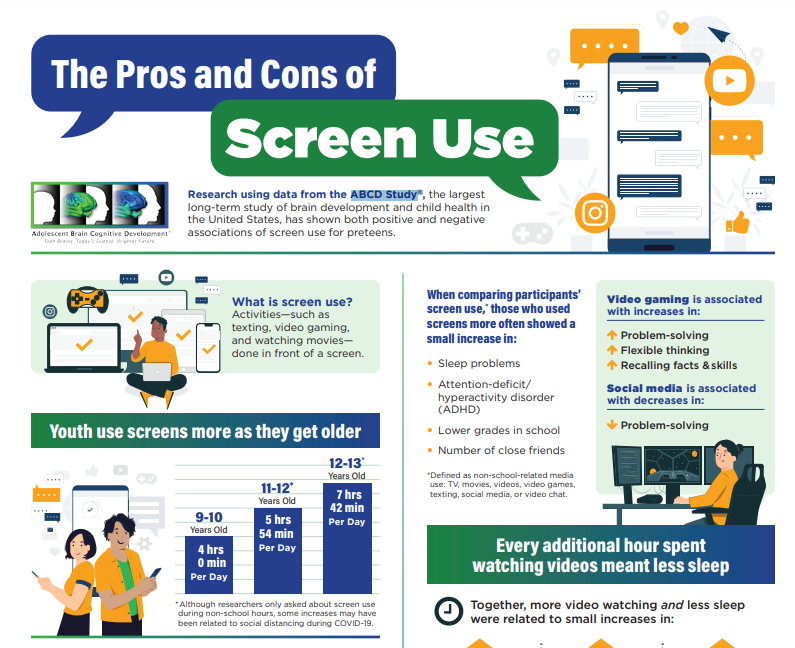“How much screen time is too much screen time?”
“What are the effects of social media on an adolescent’s mental health?”
“Are video games good or bad?”
If you’re raising a digital native, you’ve probably asked some of these very questions. So, let’s dive into the recent results published by the Adolescent Brain Cognitive Development (ABCD)® Study.
ABCD is the largest long-term research project on child health and brain development in the United States. Launched in 2016, the study aims to understand the factors that influence cognitive, social, emotional, and physical development in children as they transition into adolescence and early adulthood. If you want to nerd out, here are some key features of the study. Otherwise, skip to some recent findings below.
- Scope and Scale: With over 11,000 participants aged 9-10 from diverse backgrounds across the United States, the ABCD study offers a comprehensive view of child and adolescent development.
- Longitudinal Design: The study follows participants for ten years, collecting data annually to observe changes and patterns in cognitive, emotional, and physical development over time.
- Multidisciplinary Approach: The ABCD study integrates various research disciplines, including psychology, neuroscience, genetics, and public health, to provide a holistic understanding of child development.
- Wide Range of Influencing Factors: The study explores numerous factors that may impact brain development, such as family dynamics, education, peer relationships, screen time, substance use, genetics, and mental health.
- Data Sharing: The ABCD study shares anonymized data with the scientific community, fostering collaboration and enabling researchers worldwide to access and contribute to the understanding of child and adolescent development.
- Impact: The ABCD study represents a significant milestone in understanding the complex interplay of factors that influence child and adolescent brain development. By providing valuable insights into the developing brain, the study aims to inform policies, interventions, and educational practices that promote healthy development for future generations.
Recent findings are highlighted in this infographic produced by the ABCD Study® (click below for the full graphic)

High-level findings: Not all screen time is made equal. In moderation, certain types of screen time can be beneficial. Video gameplay, for example, has been shown to boost problem-solving and creativity. However, using screens more often, in general, is correlated with sleep problems, ADHD, and lower grades. As you can see from the infographic, the effects of screens on mental health are not black & white. If you’re interested in learning more:
You don’t want to miss the Reconnected Kids Summit! Our lineup of 20 speakers has answers to all your questions and will help you cultivate mindful, balanced tech use in your home.